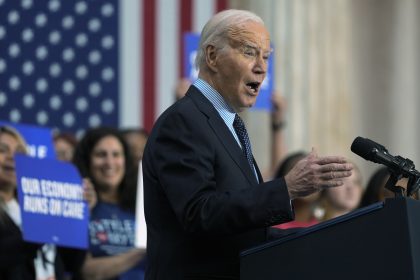Media Union Adds Opposition to Broadcast Deal

WASHINGTON — There’s increasing scrutiny on the deal that would allow 64 local news stations to be bought by the hedge fund Standard General.
Last week the NewsGuild-Communications Workers of America and National Association of Broadcast Employees and Technicians-CWA filed a petition with the Federal Communications Commission to stop the $5.4 billion deal that would take TEGNA, a publicly traded broadcast company, private.
“We are trying to preserve the few local journalists, [which] is important because whether they are in broadcast, print or radio, it’s important we keep news jobs because they help our democracy,” said Jon Schleuss, president of NewsGuild, during a phone interview Wednesday.
This deal for Standard General to buy the broadcast company comes at a time when local media is facing increasing financial pressures and there are more questions about ownership.
Between 2008 and 2020 U.S. newsroom employment fell by 26% — about 30,000 jobs — according to Pew Research.
“In this industry the number one cost is labor, [and] that is what they are looking to cut,” he said.
He pointed to other hedge funds like Alden Global Capital, which have bought newspapers including The Denver Post where they cut about 80% of staff. Seeing those takeovers in recent years, more journalists have banded together to unionize to combat the industry’s volatility and focus on journalism, Schleuss said, adding NewsGuild has gained 5,700 members from 102 different organizations since 2018.
There have also been questions raised by the FCC, which sent a letter in early June asking how the deal would affect staffing and local news programming. The commission also asked if the company would raise retransmission consent fees, which is what the stations charge television companies like Comcast and DirectTV to carry their content.
The company says it will not look to cut jobs and it will negotiate the retransmission fees “in good faith,” the company said in a recent FCC filing in response to the commission’s questions.
“Standard General has a demonstrable historical commitment to local news operations and pursued this transaction because it has a vision for growing TEGNA’s presence as a leading local broadcast television company employing state-of-the-art technology to provide trusted local news coverage and programming targeted to local audiences,” a company spokesperson wrote in an email. “Standard General has always placed a high value on local journalism and has no intention, and has not had any intention, of reducing news or news staff at TEGNA stations.”
Instead, the company, which would be the largest minority-owned and female-led TV broadcasting company, says local news coverage will get better under private ownership.
“TEGNA, currently publicly traded, will benefit from becoming a private, more agile company not bound by constraints of quarterly profit reporting,” the spokesperson wrote. “This will enable the company to adapt rapidly to a changing technical and competitive environment. Standard General will be able to — and plans to — make substantial investments for its long-term success.”
And the company points to the four stations it bought in 2021 where “it has increased newsroom staff by 28% overall, including the addition of six local journalists to KBSI(TV), Cape Girardeau, Missouri, to produce unique local news stories from the Paducah/Cape Girardeau area. Prior to Standard General’s acquisition, KBSI(TV) did not employ any local journalists or produce any of its own local news,” the company said in its recent FCC filing.
However, Schleuss says that isn’t enough, and the union is asking for the company to make an agreement with the FCC pledging no layoffs to new staff at the risk of facing a financial penalty.
The risk of losing local reporters is too grave, he said.
“The most important thing about having local journalists in your community is they are going to be a check on local government, on local corruption,” Schleuss said. “They go to the city council meetings, they go to the water commission and school board meetings and tell people where their local tax dollars go.”
The NewsGuild only represents staff at one of TEGNA’s stations in St. Louis, Missouri, and its sister guild, NABET, represents TEGNA technical staff in Hartford, Connecticut, and Cleveland, Ohio. However, this petition to ask the FCC to stop the deal without better protections is vital for local news in general at a time when people don’t trust the news as often, Schleuss said.
“If people feel disillusioned by ‘the media’ as a monolith that’s likely because they don’t see themselves represented in the news, and that’s likely because they don’t have that local news.”
Madeline can be reached at [email protected] and @MadelineHughes























